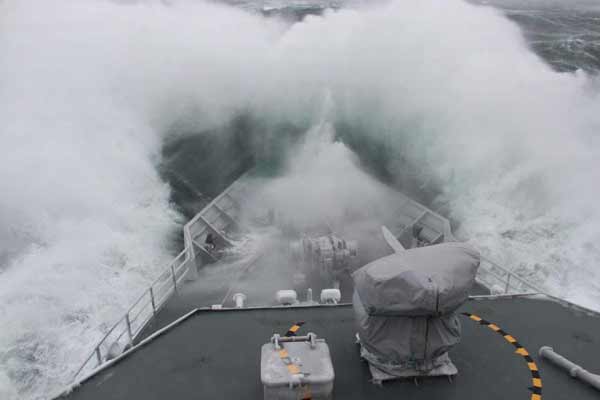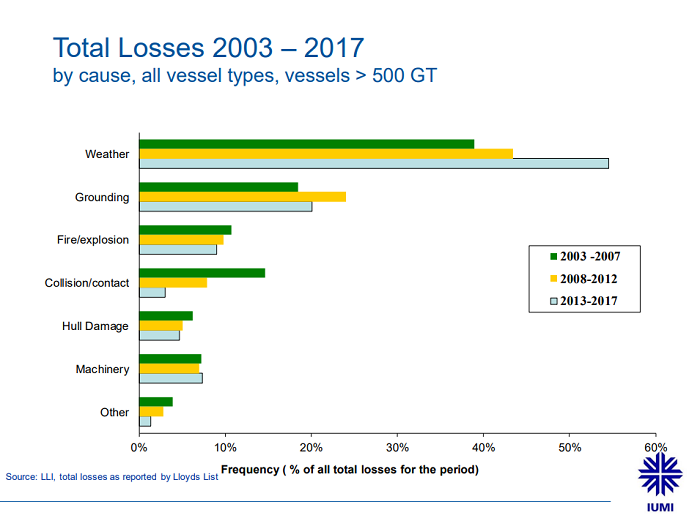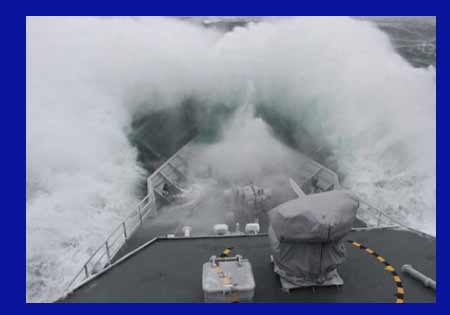‘The sea - this truth must be confessed - has no generosity. No display of manly qualities - courage, hardihood, endurance, faithfulness - has ever been known to touch its irresponsible consciousness of power.’ - Captain Joseph Conrad, Author
The Arabian Sea is usually calm for most of the year. From the Somali coast to the Indian subcontinent, provides nutrient-filled waters for fishing boats. But during the summer months, the heat creates an intense low surface pressure over the surrounding land creating a circulation of the air above it. The elevated east African coastline intensifies the wind near the surface and directs it parallel to the coast of Somalia, Yemen and Oman. These funnelling effects increase wave heights of up to 20 feet.
One of our ships was bound from Singapore to the Suez Canal with over 4000 containers full of goods ranging from sports shoes to industrial chemicals. Usually, ships prepare in advance for heavy weather, such as installing additional securing of things that could move about and minimise activities of the crew on an open deck.
It’s a life lesson that what is usually expected may not always happen. The sea proved that this ship’s preparations proved less than adequate. When the ship reached the turning point off the island of Socotra, it started rolling and pitching violently. An Ordinary Seaman who was on his routine rounds below the main deck heard crashing sounds coming from the forward section of the ship. He reported this to the chief officer who in turn, gathered two of his men and went forward. The captain monitored the operation from the bridge but as it turned out, he was merely watching and not helping them do the job safely.
The chief officer and his crew reached the forward part of the ship and started tightening the loose anchor chain with wire ropes. But before they could complete their job, a huge wave struck, washing over the forward deck of the ship.
The wave, carrying the momentum from hundreds of miles, swept the men across the deck like matchsticks. They were slammed against various deck winches, and by the time the wave passed, they were lying around like rag dolls. The captain who saw all this from the bridge immediately changed course and speed to shelter the men from further damage, though he could only hope that it was not the worst possible outcome.

It was bad, all three men had multiple fractures, including broken ribs. But they were still breathing. The captain called our office for assistance, and immediately we directed him to divert the ship to the nearest port of Salalah in Oman. No helicopters were available to fly in this weather, so we arranged for a rendezvous with a rescue boat. The three men were lowered from the ship to the rescue boat in stretchers. What a way to return home!
Fortunately, in spite of their serious injuries, the men survived, but it would be almost two years before they could work at sea again.
The captain and his team had failed to anticipate and prepare for the rough weather ahead of them. The captain’s actions in heavy seas were poor; he had allowed his men to be exposed to dangerous waves when he should have slowed down the ship or altered course to provide a more sheltered condition for the men to do their work. When I asked the captain later why he had not manoeuvred the ship in rough weather, he gave me a very unconvincing reply ‘I didn’t want to be late for the Suez Canal transit’. Misplaced priorities and inadequate skills had caused this professional to falter in rough weather.
Stormy seas cause around 75% of the total losses of ships every year.[1] How one should navigate a testing environment is a key leadership skill to be learned. After all, when the going gets tough, the tough get going.

Total loss statistics- courtesy IUMI
--+--
[1] AGCS. Allianz. Causes of total losses 2003-2017


